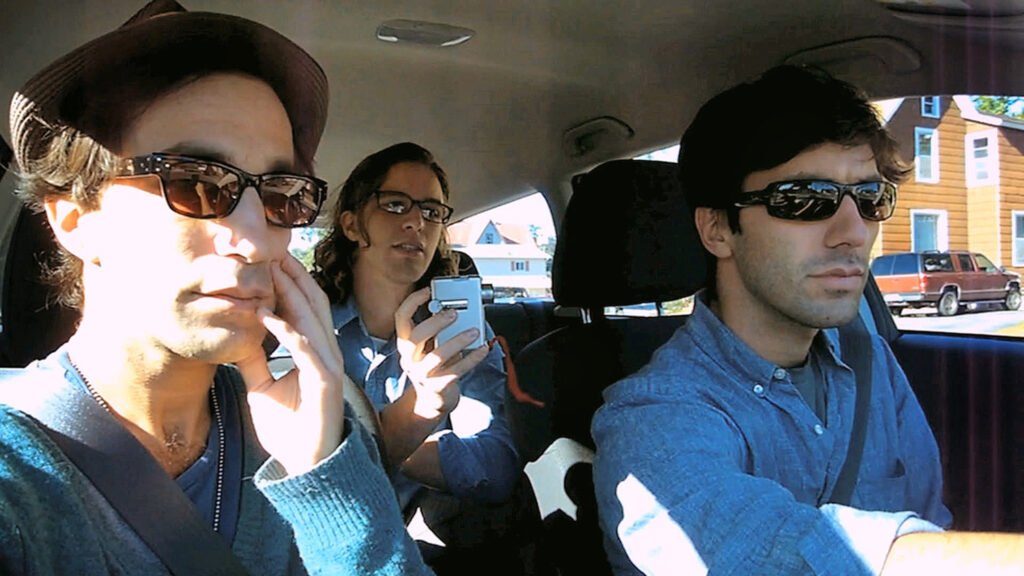The 2010 documentary Catfish, directed by Henry Joost and Ariel Schulman, tells a story that is both a product of its time and an enduring commentary on how technology shapes our relationships. When it premiered, the film struck a nerve, tapping into a rising unease about the way we present ourselves online and the blurring lines between our digital personas and real identities. Perhaps the most significant cultural contribution of Catfish is that it coined the now-common term “catfishing,” which refers to the act of creating a fake persona online to lure someone into a relationship. For that reason alone, it’s worth looking back on this film a decade later, to see both how the world has changed and how much of Catfish still feels eerily relevant.

The film begins innocently enough. Nev Schulman, a New York-based photographer, strikes up an online friendship with an 8-year-old girl named Abby, an artistic prodigy from rural Michigan who sends him remarkably sophisticated paintings based on his photographs. Soon, Nev finds himself becoming close to Abby’s family, particularly her attractive older sister Megan. Their online communication evolves into late-night phone calls, flirty text messages, and Facebook interactions. Nev begins to develop romantic feelings for Megan, even though they’ve never met in person.
At this point, Catfish seems like it might be a documentary about love in the digital age—about the possibilities and excitement of making connections through social media, even across vast distances. But as Nev’s relationship with Megan deepens, small cracks start to appear. Discrepancies begin to emerge between the details Megan provides and the reality Nev is able to uncover. A song Megan claims to have recorded turns out to have been lifted from YouTube. Other inconsistencies and red flags pile up until Nev and his filmmakers decide to take a trip to Michigan to meet Megan and her family in person.

What they find is not the Megan of Nev’s imagination, but Angela, a middle-aged woman who has been using several fake profiles to communicate with Nev. Angela is not Abby’s mother but is instead a lonely housewife who has created an elaborate network of fictional characters to escape the dreariness of her real life. Megan, Abby, and several other characters Nev had been interacting with were all figments of Angela’s imagination, projections of the life she wishes she had. What starts as a seemingly innocent online romance turns into a psychological exploration of deception, loneliness, and longing.
Watching Catfish now, in 2024, it’s hard not to appreciate just how prescient the film was. Catfish tapped into the growing dissonance between who we are and who we present ourselves to be online. It exposed the ease with which people could manipulate and distort their identities in the digital space, and how profoundly that could impact those on the other side of the screen.
The term “catfishing” has since become part of our everyday vocabulary, and it continues to resonate as more and more people have found themselves duped by fake online personas. Whether it’s through dating apps, social media, or even political bots, Catfish feels like a warning shot for the way the internet has reshaped our understanding of authenticity. It’s a film that, in hindsight, captured the anxiety of a moment when the digital and the real were beginning to blur, a moment we’re still very much living in today.
That being said, the film’s enduring cultural impact shouldn’t overshadow its limitations. While Catfish tells an intriguing and often suspenseful story, its subject matter ultimately feels stretched a bit thin. For all the intrigue surrounding the mystery of Megan’s identity, the film takes too long to arrive at its inevitable conclusion, and once it does, it struggles to maintain the same level of emotional or narrative tension. By the time the filmmakers confront Angela, there’s a sense of deflation rather than revelation. Angela’s confession is deeply sad, but it doesn’t pack the emotional punch one might expect after so much buildup. Instead of a climactic confrontation, we get a quiet, almost anticlimactic unraveling of the truth.
Part of this is because, as fascinating as Angela’s deception is, it lacks the wider societal or political implications that might give the film greater heft. While the term “catfishing” has since taken on a broader meaning, the documentary itself is narrowly focused on one person’s lonely life and her attempt to escape it through the internet. We’re left with some lingering questions about the nature of deception and identity, but they’re not explored in much depth. The filmmakers approach Angela’s story with curiosity but not much critical inquiry. There’s a missed opportunity here to dig deeper into the psychology of why people create these alternate identities and what it says about the broader phenomenon of social media.

In terms of filmmaking, Catfish is serviceable but not particularly groundbreaking. It’s shot in a cinéma vérité style, and while the shaky handheld camerawork adds a sense of immediacy and intimacy, it can also feel amateurish at times. The film’s pacing is uneven, and there are stretches where the story drags, particularly in the lead-up to the climactic trip to Michigan. The filmmakers’ decision to film Nev’s journey from the beginning feels a bit contrived in hindsight—there’s always a suspicion that they anticipated some dramatic twist all along, and the film occasionally feels more like a reality TV show than a genuine documentary.
Still, for all its flaws, Catfish remains a fascinating snapshot of a specific moment in time—when the novelty of social media and the internet as a place for real relationships was still fresh, and the dark side of online deception was only just coming into public consciousness. The film captures the innocence of those early internet days, when people were still figuring out how to navigate online relationships, and the idea of being “catfished” seemed shocking. In that sense, Catfish is a time capsule of the early 2010s, a period that feels both recent and distant as our lives have become more enmeshed in the digital realm.
Ultimately, Catfish deserves credit for capturing a story that feels both deeply personal and strangely universal. While its subject matter is thin at times, the film manages to maintain our attention, thanks largely to Nev’s likability and Angela’s tragic complexity. It may not be the most impactful documentary in terms of grand social issues or historical significance, but it nonetheless taps into a fascinating phenomenon that continues to shape how we interact with one another in the digital age.
Score: 7/10

Leave a Reply